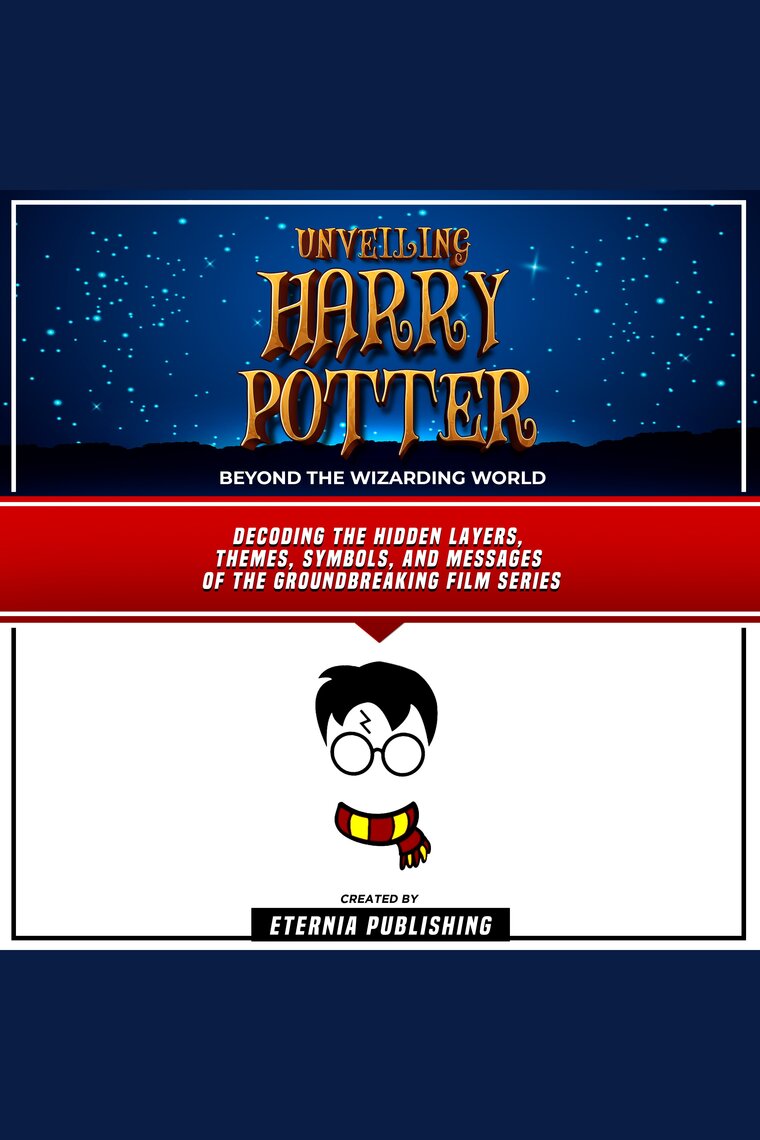From Page To Screen: Harry Potter’s Literary Success
Once upon a time, in a world filled with broomsticks and magic wands, a young boy named Harry Potter captured the hearts and imaginations of readers around the globe. From his humble beginnings on the pages of J.K. Rowling’s bestselling novels to his epic journey onto the silver screen, Harry Potter’s literary success is nothing short of magical. Join me as we delve into the enchanting story of how this beloved wizard made the leap from page to screen, captivating audiences of all ages along the way.
Harry Potter’s literary success is a testament to the power of storytelling. Rowling’s captivating narrative, filled with vivid descriptions and relatable characters, transported readers to the enchanting world of Hogwarts School of Witchcraft and Wizardry. The books became a global phenomenon, captivating readers young and old with their tales of friendship, courage, and the triumph of good over evil. As the series gained popularity, the demand for a cinematic adaptation grew, and it wasn’t long before the wizarding world of Harry Potter came to life on the big screen.
From the moment the first film, “Harry Potter and the Philosopher’s Stone,” hit theaters, fans were mesmerized by the visual spectacle that brought their favorite characters and magical settings to life. The films captured the essence of Rowling’s books, staying true to the spirit of the story while adding their own magical touch. With each new installment, the Harry Potter movies grew in scope and scale, captivating audiences worldwide and solidifying the franchise’s place

From Page to Screen: Harry Potter’s Literary Success
The Harry Potter series, written by J.K. Rowling, has become one of the most successful literary franchises in history. From its humble beginnings as a children’s book to its worldwide popularity as a blockbuster film series, Harry Potter has captured the hearts and imaginations of millions of fans around the world. In this article, we will explore the journey of Harry Potter from the pages of the books to the big screen, and delve into the reasons behind its immense success.
The Birth of a Phenomenon
The story of Harry Potter began in 1997 with the release of the first book, “Harry Potter and the Philosopher’s Stone” (known as “Harry Potter and the Sorcerer’s Stone” in the United States). The book introduced readers to a young orphan named Harry Potter, who discovers that he is a wizard and is whisked away to the magical world of Hogwarts School of Witchcraft and Wizardry. The book was an instant success, captivating readers of all ages with its enchanting story and relatable characters.
The success of the first book paved the way for the rest of the series, with each subsequent installment garnering even more attention and acclaim. The books not only captured the imagination of readers but also tackled important themes such as friendship, courage, and the battle between good and evil. Rowling’s masterful storytelling and richly detailed world-building drew readers in and kept them eagerly anticipating each new release.
The Power of Imagination
One of the key factors behind the success of the Harry Potter series is its ability to ignite the imagination of readers. Rowling’s vivid descriptions of the magical world of Hogwarts, complete with its spells, potions, and mythical creatures, transported readers to a place where anything was possible. The books allowed readers to escape into a world of fantasy and adventure, where they could befriend witches and wizards, battle dark forces, and experience the thrill of magic firsthand.
The success of the books was further enhanced by the passionate fan community that sprang up around them. Readers formed book clubs, attended midnight release parties, and engaged in lively discussions about their favorite characters and plot twists. The Harry Potter fandom became a global phenomenon, with fans eagerly awaiting each new book and eagerly speculating about what would happen next.
From Page to Screen
With the immense popularity of the books, it was only a matter of time before Harry Potter made his way to the big screen. In 2001, the first film adaptation, “Harry Potter and the Philosopher’s Stone,” was released, and it was an instant hit. The film brought the magical world of Harry Potter to life, with stunning visual effects, a talented ensemble cast, and a faithful adaptation of Rowling’s beloved story.
The success of the first film led to the production of seven more films, each covering one of the books in the series. The films not only stayed true to the spirit of the books but also added their own visual flair and cinematic magic. The Harry Potter films became a cultural phenomenon in their own right, breaking box office records and earning critical acclaim.
The Magic of Translating a Book to Film
Translating a beloved book series to the big screen is no easy feat, but the Harry Potter films managed to capture the essence of Rowling’s world and bring it to life. The films were able to recreate the magic and wonder of the books, while also making necessary adaptations for the visual medium. The casting of the films was particularly noteworthy, with actors like Daniel Radcliffe, Emma Watson, and Rupert Grint embodying the beloved characters and bringing them to life on the screen.
The success of the Harry Potter films can be attributed to their ability to both satisfy fans of the books and attract new audiences. The films stayed true to the heart and soul of Rowling’s story while also appealing to a wider audience with their stunning visuals and captivating storytelling. They introduced a whole new generation of fans to the magical world of Harry Potter and ensured that the franchise would continue to thrive for years to come.
The Legacy of Harry Potter
The Harry Potter series has left an indelible mark on popular culture and has had a lasting impact on the literary and film industries. It has inspired countless young readers to develop a love for books and storytelling, and has paved the way for other successful book-to-film adaptations. The series has also sparked a renewed interest in fantasy literature and has led to the rise of other popular franchises, such as “The Hunger Games” and “Twilight.”
In addition to its cultural impact, the success of Harry Potter has also had significant financial implications. The books and films have generated billions of dollars in revenue, making J.K. Rowling one of the wealthiest authors in the world. The success of the franchise has also led to the creation of theme parks, merchandise, and spin-off films, ensuring that the magic of Harry Potter will continue to enchant audiences for years to come.
A Lasting Literary Success
The enduring popularity of the Harry Potter series is a testament to the power of great storytelling and the ability of a well-crafted narrative to capture the hearts and minds of readers. Rowling’s books have transcended age and genre, appealing to readers of all backgrounds and creating a shared cultural experience. The success of Harry Potter is a reminder of the lasting impact that literature can have on our lives and the power of imagination to transport us to new and magical worlds.
Key Takeaways: From Page to Screen – Harry Potter’s Literary Success
- Harry Potter’s success story began with J.K. Rowling’s bestselling book series.
- The magical world of Harry Potter was brilliantly brought to life on the big screen.
- The movies captivated audiences of all ages with their stunning visuals and captivating storytelling.
- The success of the books and movies led to a massive fan following and a global phenomenon.
- Harry Potter’s literary success shows the power of imagination and the impact of a well-told story.
Frequently Asked Questions
What factors contributed to the literary success of the Harry Potter series?
The Harry Potter series achieved immense literary success due to several key factors. Firstly, J.K. Rowling’s exceptional storytelling skills and her ability to create a rich and immersive world captivated readers of all ages. The well-developed characters, intricate plotlines, and themes of friendship, bravery, and good versus evil resonated with a wide audience.
Additionally, the series’ marketing and publicity strategies played a significant role in its success. The books were heavily promoted, and Rowling’s engagement with fans through social media and events further fueled the Harry Potter phenomenon. The timing of the release of each book also generated anticipation and excitement, ensuring a dedicated fan base eagerly awaited each installment.
How did the transition from page to screen contribute to Harry Potter’s success?
The transition from page to screen undoubtedly played a crucial role in the success of the Harry Potter series. The film adaptations brought the magical world of Harry Potter to life, allowing fans to visually experience the story they had fallen in love with through the books. The exceptional casting choices, stunning visual effects, and meticulous attention to detail in the production design all contributed to creating a captivating cinematic experience.
The films also introduced the story to a wider audience, attracting those who may not have been avid readers. The success of the movies further increased the popularity and visibility of the Harry Potter brand, leading to a surge in book sales and merchandise. The combination of the beloved books and the successful film adaptations solidified Harry Potter’s position as a cultural phenomenon.
How did J.K. Rowling’s writing style contribute to the success of the Harry Potter series?
J.K. Rowling’s unique writing style played a significant role in the success of the Harry Potter series. Her ability to create vivid imagery and build complex, relatable characters drew readers into the magical world she had created. Rowling’s attention to detail and her knack for crafting suspenseful and engaging narratives kept readers eagerly turning the pages.
Furthermore, Rowling’s writing style evolved throughout the series, allowing the books to grow with their audience. The earlier books were more accessible to younger readers, while the later installments delved into darker and more complex themes, appealing to older readers as well. This versatility in writing style ensured that the series continued to engage readers of all ages and kept them invested in the story until the very end.
How did the Harry Potter series impact the literary world?
The Harry Potter series had a profound impact on the literary world. Firstly, it rejuvenated the young adult fiction genre, attracting a new generation of readers and inspiring countless authors to explore similar themes and storytelling techniques. The success of the series also led publishers to invest more in children’s and young adult literature, recognizing the significant market potential.
Additionally, the Harry Potter series ignited a renewed interest in reading, with many young readers discovering the joy of books through the magical world of Hogwarts. The series also sparked a global reading phenomenon, with translations of the books available in numerous languages, further solidifying its international impact. Overall, the Harry Potter series revolutionized the literary landscape and left an indelible mark on popular culture.
What lessons can aspiring writers learn from the success of the Harry Potter series?
The success of the Harry Potter series offers valuable lessons for aspiring writers. Firstly, it emphasizes the importance of crafting compelling and well-developed characters. Readers become emotionally invested in the story when they connect with the characters on a deep level. Additionally, the series showcases the power of world-building and creating a captivating setting that readers can fully immerse themselves in.
Furthermore, J.K. Rowling’s perseverance and dedication to her craft serve as inspiration for aspiring writers. Rowling faced numerous rejections before finding a publisher for the first Harry Potter book, highlighting the importance of persistence and believing in one’s work. The success of the series also underscores the significance of storytelling and the ability to create narratives that resonate with a wide audience. Aspiring writers can learn from Rowling’s ability to balance fantastical elements with relatable themes, resulting in a universally beloved series.
Harry Potter Page To Screen: The Complete Filmmaking Journey Review
Final Summary: The Magical Journey Continues
And so, we come to the end of our journey through the enchanting world of Harry Potter. From the pages of J.K. Rowling’s imagination to the silver screen, the Boy Who Lived has captured the hearts of millions around the globe. This literary-turned-cinematic masterpiece has not only entertained us but also taught us valuable lessons about friendship, bravery, and the power of love.
Throughout this article, we have delved into the reasons behind Harry Potter’s literary success and the seamless transition from page to screen. From the captivating storytelling to the brilliantly crafted characters, every aspect of this magical saga has contributed to its enduring popularity. The combination of J.K. Rowling’s exquisite writing and the dedication of the filmmakers brought the wizarding world to life in a way that continues to resonate with fans of all ages.
So, whether you’re a die-hard Potterhead or a curious Muggle, the journey doesn’t end here. The magic of Harry Potter lives on in the hearts of those who have been touched by its spell. We’ll forever cherish the lessons learned, the tears shed, and the laughter shared while embarking on this extraordinary adventure. As we bid farewell to Hogwarts, we can’t help but feel grateful for the literary masterpiece that has become a cultural phenomenon and will continue to inspire generations to come. As Dumbledore wisely said, “Happiness can be found





